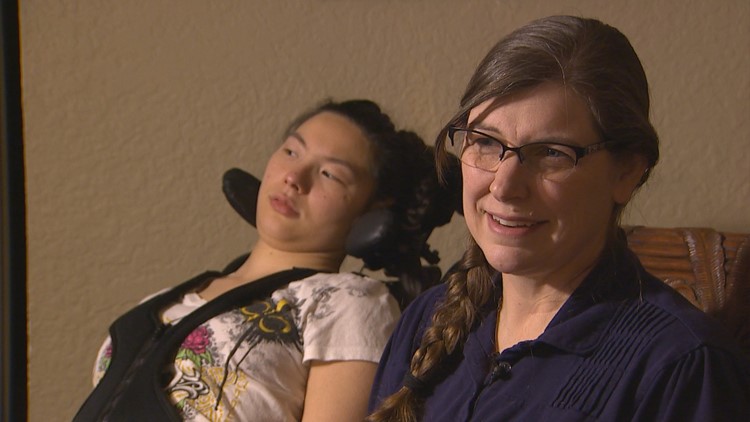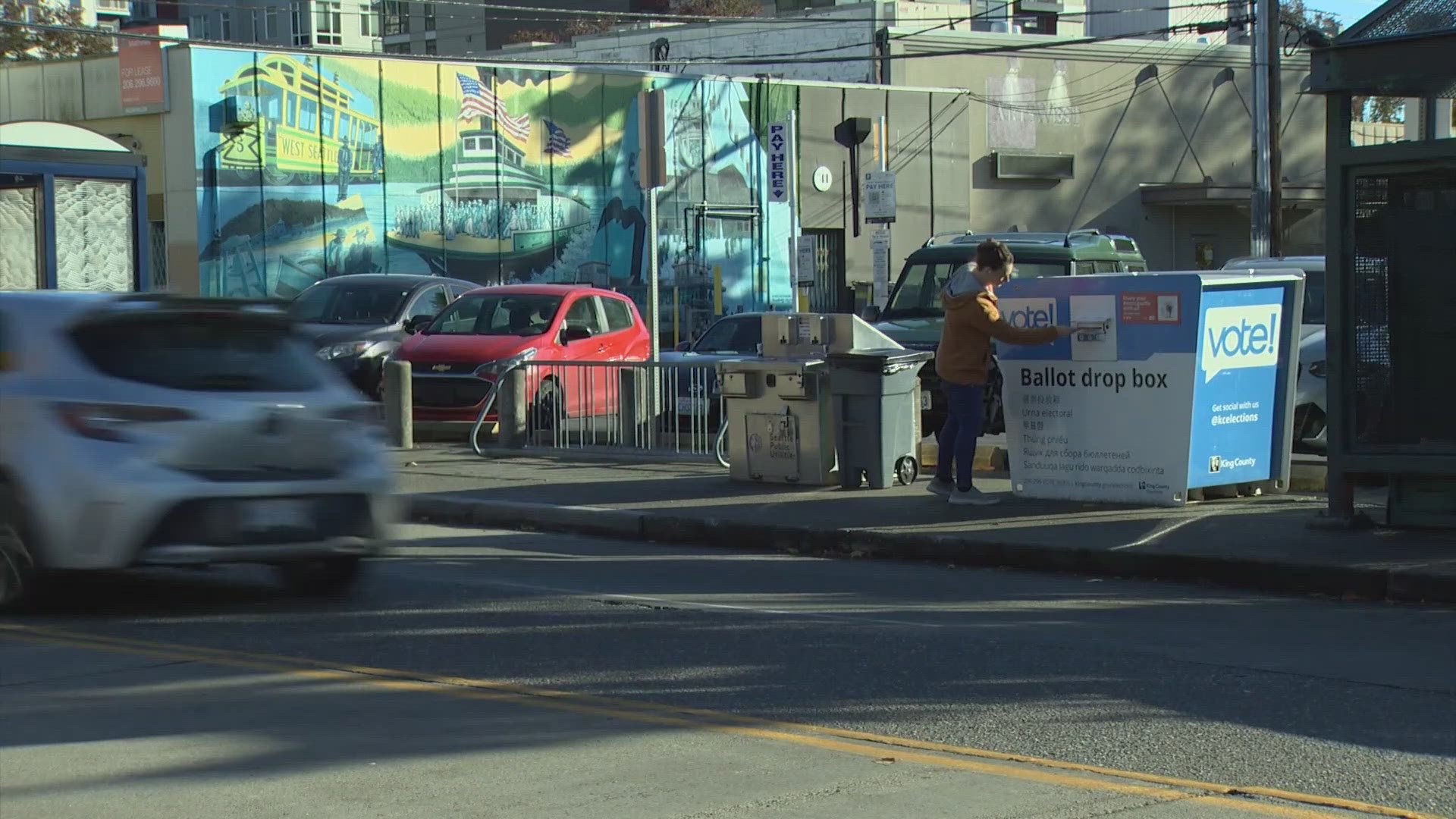Melissa Santiago of Covington has made a career of taking care of her now 21-year-old daughter Anna who has quadriplegia cerebral palsy.
“I chose to do it because I don't want my daughter in an institution,” said Santiago.
The care is constant, preventing Santiago from working outside of the home, so she signed up as an individual provider paid by the state.
Currently, Washington has about 35,000 state-paid home caregivers, a number that’s grown in recent years. It's estimated around two-thirds are family members, and the caregivers are all represented by the powerful union SEIU 775.
However, in 2014, the U.S. Supreme Court ruled that home caregivers could opt out of paying union dues.
“The Supreme Court said you're allowed to opt out, so of course I opted out because I get to keep more of my $14 an hour.”
However, now a bill before the State Legislature could change that. Senate Bill 6199, requested by the Department of Social and Health Services (DSHS) would allow the state to hire a private company to help manage a growing caseload.
Supporters say the legislation is necessary to handle the administrative work associated with a growing population of home caregivers.
“This change will trust those duties to private-sector vendors trained in delivering them efficiently, allowing managers to concentrate on their real jobs: keeping our seniors healthy and safe in their homes,” said Senator Annette Cleveland, D-Vancouver, one of the bill’s sponsors.
However, the bill would also allow SEIU to negotiate a new labor contract that could potentially remove the provision that allows home caregivers to opt out of paying union dues or a slightly lesser representation fee.
"We certainly believe that it is fair and right that all workers who benefit from the raises and benefits of the union contract should pay towards the cost of negotiating those contracts,” said Adam Glickman of SEIU 775 who says wages have increased to an average of $15/hr by 2019.
The union also notes wages it still negotiated on behalf of the home caregivers and heard grievances, even if they opted out of dues.
Senator Cleveland says the bill will provide home care providers the same rights as other employees who work in the private sector under union representation.
“Unions try to protect people from being overworked and underpaid. Well the reality is my daughter is 24/7 care,” counters Melissa Santiago.
The Washington mom says she just wants the choice that the Supreme Court ruling gave her.
“They're so huge. They're so big,” said Santiago of the union. “We're little; we're at home. We're weak. What are we going to do? How are we going to go up against a giant like that.”
SB 6199 has already passed the Senate. It had a committee hearing this week but has not yet received a vote in the House.
Related: Track bill's status
Correction: An earlier version of this story estimated that one-third of independent provider home caregivers are family members. The updated estimate is around 70% are family members, according to the state's Department of Social and Health Services.



